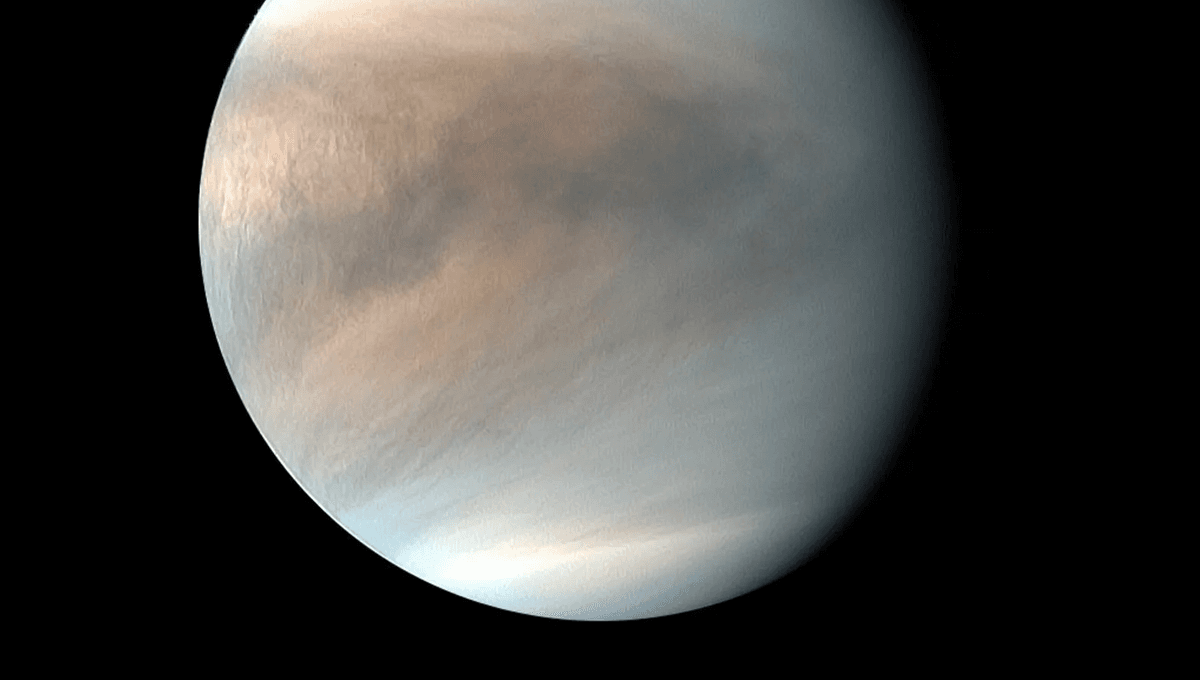
Venus has a thick deadly atmosphere. The cloud cover extends for 20 kilometers (12 miles) and is marked by flashes of light. These are believed to be lightning flashes and electrical discharges among the clouds, but now a team has an alternative explanation: meteor strikes.
The idea that it is lightning comes from different types of indirect observations. Flashes in the atmosphere of the planet are one type but there have also been observations in radio waves, and acoustic and magnetic signals recorded by the Soviet Venera missions (the only ones to ever photograph Venus’s surface) that suggest that lightning might occur on Earth’s hellish twin. But if they are caused by the same phenomenon, they should happen in conjunction with one another, and this doesn’t appear to be the case.
We wanted lightning to exist, but like good scientists, we therefore tried to prove it didn’t.
Joseph O’Rourke
“What we found when we were digging into the evidence of these observations is that they don’t always match up with each other. So what we wanted to do was explore alternative explanations to these optical flashes,” lead author Claire Blaske told IFLScience.
The alternate explanation that matches the observation of the flashes is meteorites. The team estimates that if the planet was being smacked by meteors about 1 centimeter in size, they could produce flashes of light similar to what they produce on Earth.
The number of events also matches. The Japanese probe Akatsuki and the 61-inch Kuiper Telescope on Mount Bigelow, Arizona both saw flashes. Over a relatively short time frame, they report less than a dozen flashes. The researchers estimate that over 35,000 flashes happen in the Venusian atmosphere – that’s not a rate of meteors too different from what Earth experiences.
“It’s not too unreasonable to sort of envision these happening, like, 100 times a day,” Blaske explained.
It’s important to note the new study doesn’t conclude that there is no lightning in Venus’s atmosphere, just that there are equally valid alternatives to the idea. Perhaps lightning might exist closer to the surface and the flashes are meteors, explaining how the different clues of the lightning hypothesis don’t perfectly align.
“Venus is really awesome. We wanted lightning to exist. The chemical reactions that lightning produces are important to explain how life could possibly exist in the clouds. If lightning exists, it produces electromagnetic fields that future spacecraft could use to study the crust and interior of Venus,” co-author Joseph O’Rourke, from Arizona State University, told IFLScience.
“We wanted lightning to exist, but like good scientists, we therefore tried to prove it didn’t. I think the jury is still out but we think that if you want to understand lightning on Venus, you also have to understand meteors, because these are both sources of just bright flashes.”
Understanding Venus helps us understand our own world but solving a mystery such as this also matters for future missions. NASA and the European Space Agency are planning a return to Venus in the next decade, and private missions are also in the works.
“I think it’s a really important mystery because a lot of missions being proposed are trying to send balloon missions or aerial platforms to the clouds of Venus. Obviously, if lightning is happening all the time, that would be a danger to all of your expensive equipment. That’s definitely something to keep in mind for the future Venus exploration,” Blaske told IFLScience.
The study is published in Journal of Geophysical Research: Planets.
Source Link: Mysterious Flashes On Venus May Not Be Lightning After All